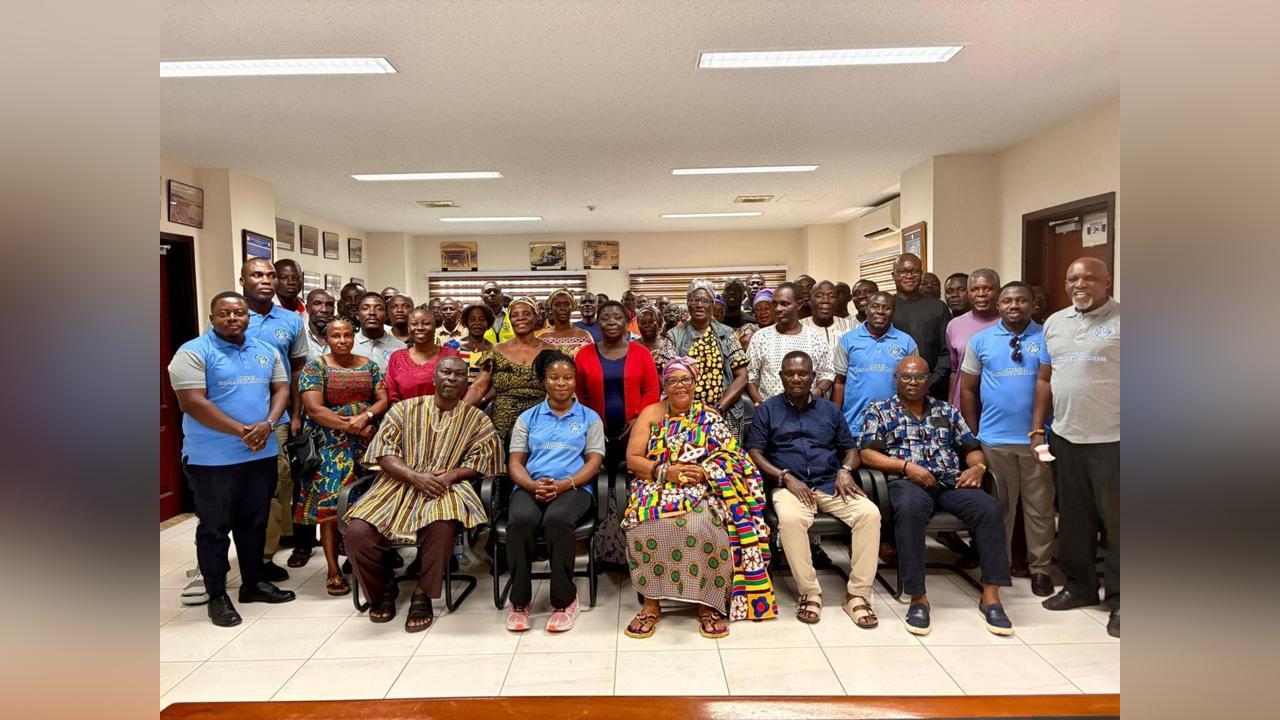Africa-Press – Ghana. The validation stakeholder engagements for Creating Synergies between Indigenous Practices and Scientific Knowledge (ISIPSK), popularly known as the “Sankofa Project”, have commenced in Sekondi in the Western Region.
The engagement is aimed at discussing and validating research findings and incorporating indigenous knowledge in policy formulation and implementation.
The ISIPSK project is implemented by the University of St Andrews in partnership with the Fisheries Commission of Ghana (FC), the Canoe and Fishing Gear Owners Association of Ghana (CaFGOAG), and the Fisheries Committee for the West and Central Gulf of Guinea (FCWC).
The stakeholder engagement provided a platform for fishers to verify the data, reflect on the results, and share experiences to shape recommendations for policy formulation and implementation.
Participating artisanal fishers noted that the findings mirrored their realities of declining catches and the impacts of the annual closed season, expressing their reservations about the mode of implementation of the annual Fisheries Closed Season.
Leaders of the fishers urged their peer fishers to end the destructive illegal-unregulated-unreported (IUU) practices such as harvesting of juvenile fish, light fishing, and the use of explosives, the use of chemicals, and pollution from illegal mining (galamsey).
They urged the government to review the period of the fisheries closed season, enforce regulations, and address plastic and mining-related pollution in marine space.
Female fish processors and traders participating in the engagement called for strict observance of traditional weekly fishing holidays with their male counterparts.
They also commended the Sankofa Project team for returning to share the findings with them, providing and seeking feedback, and stressing the need for participatory approaches in research, indicating that such research findings are hardly shared with them at the community and grassroots level.
Dr Ifesinachi Okafor-Yarwood, lead researcher of the Sankofa project, presented insights on respondents’ demographics, concerns about the closed season, its impacts, and ways to improve its acceptance.
She emphasised that grounding research in local knowledge makes findings more credible for both community action and policy dialogue.
Mr Joseph Yeboah, the Western Regional Director of the Fisheries Commission, reiterated the importance of the fisheries closed season within the existing science-backed biological peak period of July-August.
Mr Yeboah entreated fishers to practise responsible fishing and co-management participation and adopt good financial management and practise dependable saving habits.
Speakers from civil society organisations in the fisheries sector and maritime regulators underscored the importance of research, safety at sea, and tackling pollution.
Nana Kweigyah, the national president of CaFGOAG, thanked all stakeholders and encouraged fishers to dedicate time to fisheries governance processes.
He announced that validation engagements would also be carried out in the Central, Greater Accra, and Volta Regions and would climax with a national event.
For More News And Analysis About Ghana Follow Africa-Press







